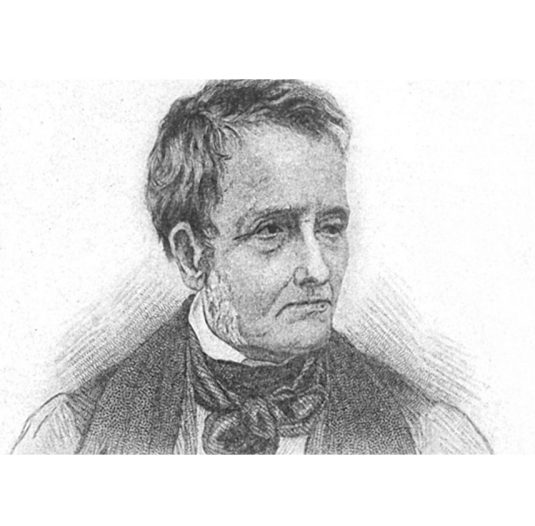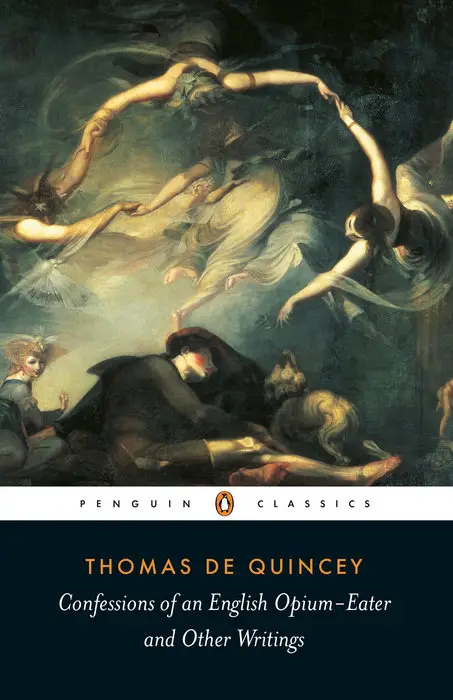‘Nobody will laugh long who deals much with opium: its pleasures even are of a grave and solemn complexion.’
Who was Thomas De Quincey?
Shrouded in desolation and volumes of opium was an extraordinary essayist with a strange mind and even stranger heart. Thomas De Quincey was a slightly less celebrated figure from the Romantics era who rose to fame for his writings in fields of economics, fiction, Greek literature and philosophy, Roman history, politics, mathematics and even biography.
However, he remains acclaimed for a singular yet striking work – Confessions of an English Opium Eater (1821). It is an autobiographical account describing the effects of the psychoactive drug on the human mind.

Early Life of Thomas De Quincey
Born in Manchester, England on 15th August 1785, Thomas De Quincey came from a merchant family. Although his family was well-off, his childhood wasn’t particularly a good one. His father passed away when he was 8 and to make matters worse, he was constantly moved from one school to another owing to certain reservations by his mother who was known to be quite dominant.
His time at King Edward’s School in Bath left him with strong proficiency in classical languages such as Greek by the time he was a teenager. But his brilliance and sensitivity left him alienated from his family. At 17, he ran away from Manchester Grammar School with the permission of his family.
However, his stay in London didn’t last for long as he was unable to support himself financially and lived in extremely poor conditions. This is where he met a 15-year-old prostitute whom he called ‘Ann of Oxford Street’ and she helped him in these trying times. His friends found him living on the street in such poverty and decided to send him back to his family. He eventually began his studies at Oxford University at 19.
Battle with Opium
This is where Quincey first discovered opium. He first began taking laudanum, a tincture of opium, for medicinal purpose for his toothache. But this usage increased and remained unchecked for so long that it led to him leaving Oxford without a degree. Quincey’s life took another turn when in a few years, he became close friends with William Wordsworth, Samuel Coleridge and other Romantic poets and moved to Lake District to live among the Romantics.
In the meantime, he continued ‘self-medicating’ himself with opium for a number of illnesses ranging from stomach pain to insomnia.
For the major part of the next 30 years, De Quincey battled with opium addiction. Although this had started from the need of painkillers, it was later on when he stumbled upon the ‘pleasures’ of opium. He mentioned on several occasions that it gave him visionary dreams filled with vivid imagery giving him a surreal experience and thus became the subject of his writing.
However, his account also mentions that these dreams would often turn into nightmares leaving profound darkness within him.
After thoughtlessly spending his family inheritance, he took up the job of a journalist in London to support his family financially. His first professional breakthrough arrived in London Magazine published under the title ‘Confessions of an English Opium Eater.’

Later Life of Thomas De Quincey
De Quincey’s wife Margaret passed away in 1837 and he had to move to Edinburgh to escape the growing debt under his name. Matters became worse when his relationship with Wordsworth hit a rocky path. Under these challenging circumstances is when he wrote ‘Suspiria De Profundis’, another dark autobiographical work.
Even though numerous volumes of work including essays and translations are accredited to his name, De Quincy’s fame rested upon ‘Confessions’ and remained so till his death in 1859. Today, a blue plaque hangs in Tavistock St, London marking the place where he worked on his most definitive piece. He will always be remembered as an artist who portrayed a darker and much deeper side of human nature in the times of the Romantics. His name may be misspelt but his work will forever be unique in English literature.
Writing Style of Thomas De Quincey
Thomas De Quincey’s writing style mirrors the story of his life – his neglected childhood, differences with family, repulsion of school discipline and monotony, adventures in Wales, his life on the streets of London, his struggles with illnesses, introduction to opium and the visions that came along with its addiction. These opium visions might have induced some readers to indulge into the drug as a trial however, no other mind can come close to the genius that is De Quincey.
De Quincey was a dreamer before opium enslaved his soul. This drug intensified a natural tendency until he became a visionary that will be read across the world for ages to come. These visions coupled with De Quincey’s splendid imagination have together created a work without an equal in English Literature and remain, to this date, an escape from the mindless monotony of daily life.